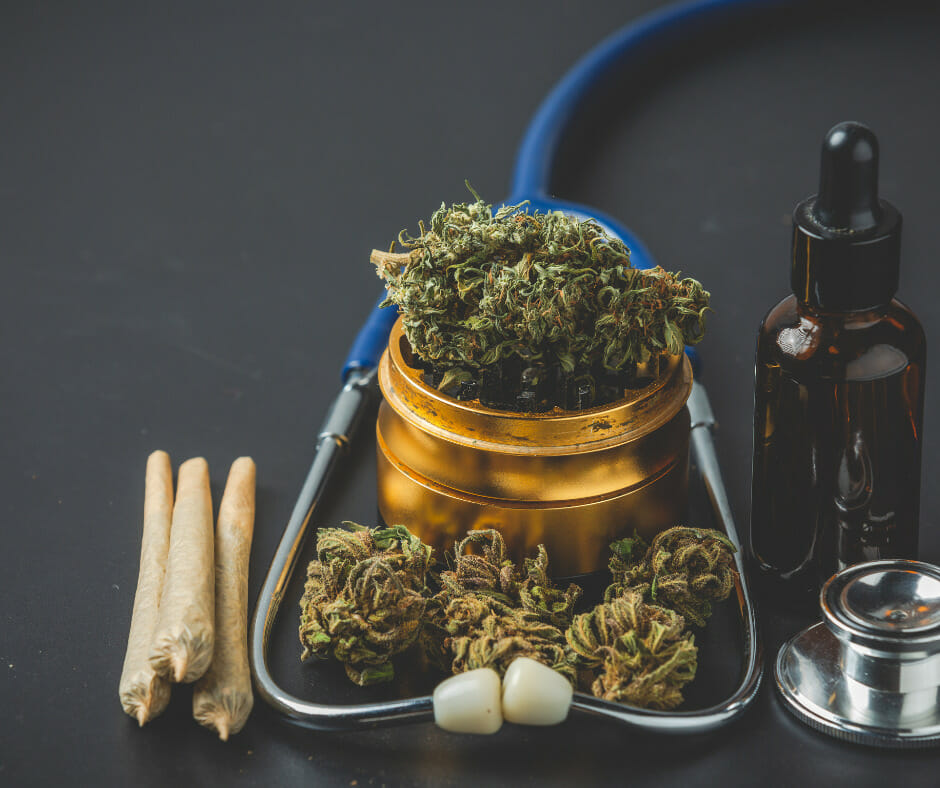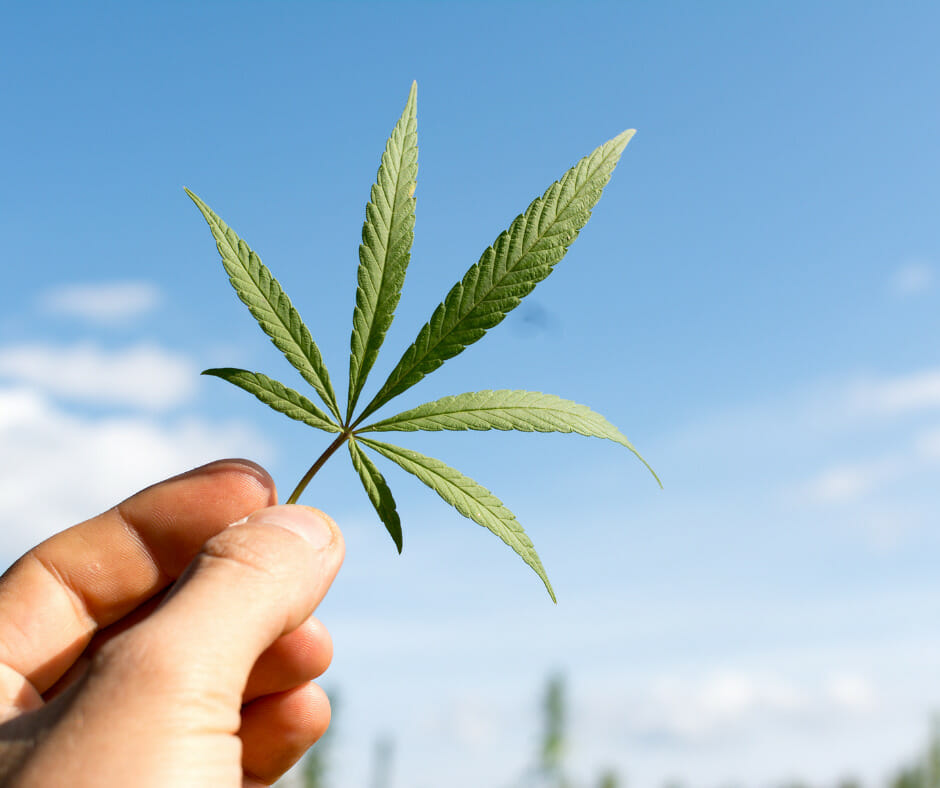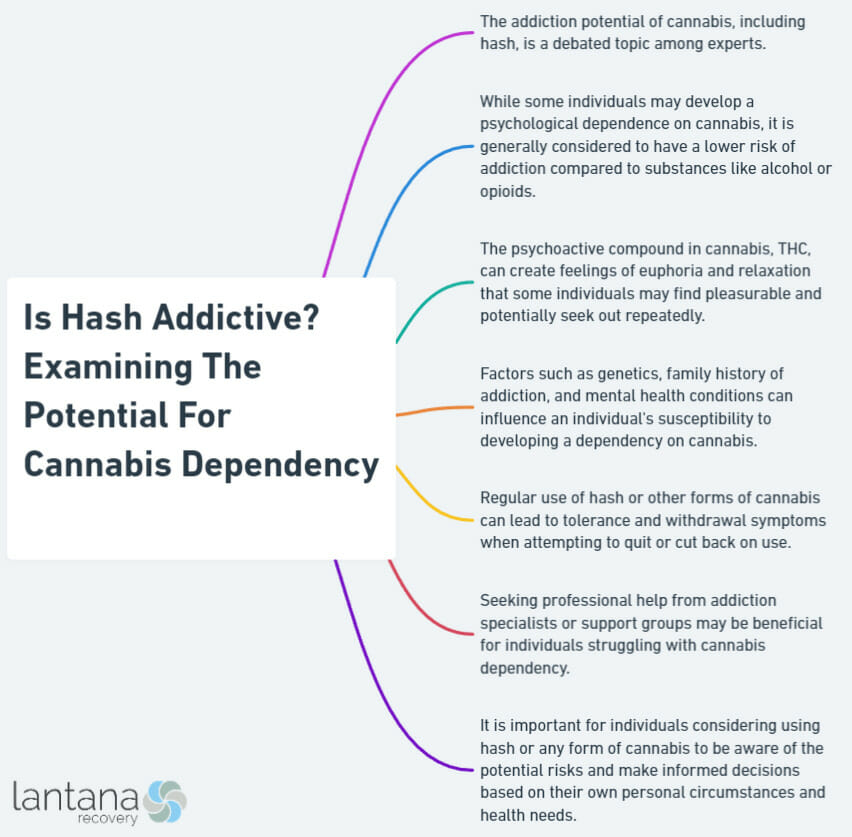Hash, a form of cannabis concentrate, is becoming increasingly popular in recent years. As its use becomes more prevalent, concerns about the addictive potential of hash arise. Understanding addiction and dependency is crucial in examining the potential for cannabis dependency.
Addiction refers to a chronic condition characterized by compulsive drug-seeking and use despite negative consequences. Dependency, on the other hand, is a physical or psychological reliance on a substance to function normally.
In this article, we will explore whether hash is addictive, considering factors such as Cannabis Use Disorder and withdrawal symptoms. We will discuss the determining factors for hash addiction, including personal vulnerability, frequency and duration of use, and mode of consumption.
Furthermore, we will delve into the risks and complications associated with hash addiction, such as impaired cognitive function and mental health disorders. Finally, we will examine various treatment options for hash addiction, including behavioral therapies and support groups.
By examining these aspects, we can gain a comprehensive understanding of the potential for cannabis dependency and the implications it may have.

Understanding Addiction and Dependency
Understanding addiction and dependency is crucial in addressing and treating substance abuse effectively. It is important to have a grasp of the following key aspects:
1. Neurobiological Factors: An understanding of addiction reveals that it alters the brain’s reward system, resulting in compulsive drug-seeking behavior. Dopamine, which serves as a neurotransmitter, plays a significant role in reinforcing addictive behaviors.
2. Environmental Influences: An understanding of addiction also involves recognizing the impact of social environments and drug availability on the development and persistence of addiction. Peer pressure and stress greatly increase the risk of substance abuse.
3. Genetic Predisposition: Understanding addiction acknowledges the influence of genetics on an individual’s susceptibility to addiction. Certain genes are associated with a higher risk of developing addictive behaviors, although other factors also play a role.
4. Psychological Factors: An understanding of addiction reveals that mental health disorders, such as depression, anxiety, and trauma, contribute to addiction. Many individuals turn to substance abuse as a coping mechanism for emotional pain or distress.
5. Tolerance and Dependency: Understanding addiction includes recognizing that continued drug use leads to tolerance, necessitating larger doses for the same effects. Dependency occurs when the body adjusts to the drug and experiences withdrawal symptoms upon discontinuation.
6. Behavioral Symptoms: Signs of addiction encompass cravings, loss of control over drug use, neglecting responsibilities, and strained relationships. Behavioral therapies aim to identify and modify these patterns.
7. Treatment Options: Effective addiction treatment incorporates medication, therapy, and support. Common approaches include cognitive-behavioral therapy (CBT), support groups, and detoxification programs.
To gain a better understanding of addiction and dependency, it is essential to approach individuals struggling with empathy and support, rather than judgment. Educating oneself about the subject helps reduce stigma and encourages individuals to seek help.
What is Addiction?
Addiction is a brain disorder that affects behavior and impairs drug control. It is characterized by compulsive drug use despite negative consequences. While not all addictions are due to substances, individuals addicted to a substance like hash can experience strong cravings and loss of control, leading them to continue using even when it interferes with their relationships, work, and health.
Tolerance is one aspect of addiction. It develops when larger amounts of the drug are needed to achieve the desired effects. This can result in increased drug use over time.
Another characteristic of addiction is dependence. Dependence refers to the physiological changes that occur in the body as a result of regular drug use. The body becomes adapted to the substance and requires it for normal functioning. If the drug is suddenly stopped or reduced, withdrawal symptoms may occur.
Addiction is a chronic condition that necessitates ongoing treatment and support and the concept of addiction, characterized by the loss of control over substances, was already a topic of discussion as early as the 17th century according to the Historical and cultural aspects of man’s relationship with addictive drugs by Marc-Antoine Crocq. Despite the challenges of overcoming addiction, recovery is possible with the help of behavioral therapies and support groups.
What is Dependency?
Dependency is when a person relies on a substance or behavior to function or feel pleasure. It can happen from repeated substance use or engaging in certain activities. Dependency can come from physical and psychological factors.
Physically, the body adapts to the substance or behavior and needs it to work properly. When it’s taken away, withdrawal symptoms may happen. These symptoms can vary depending on the substance or behavior.
Psychologically, dependency involves a strong urge to engage in a substance or behavior, usually to seek pleasure or relief from negative emotions. This can lead to losing control and affecting daily life.
It’s important to know that dependency can happen with different substances or behaviors, not just drugs. For example, people can become dependent on alcohol, drugs, food, gambling, or shopping.
Dependency is a complex condition that affects physical and mental health, relationships, and overall well-being. It often needs professional help and treatment to overcome.

Is Hash Addictive?
Curious about the addictive potential of hash? Let’s dive into the realm of cannabis dependency and explore two key aspects: cannabis use disorder and withdrawal symptoms. Buckle up as we unravel the facts, figures, and events surrounding these sub-sections, shedding light on the captivating world of hash addiction. Brace yourself for an eye-opening journey, backed by reliable sources, as we uncover the truth behind the addictive nature of this controversial substance.
Cannabis Use Disorder
“Cannabis is the most commonly used substance of abuse in the United States after alcohol and tobacco” (Cannabis Addiction and the Brain: a Review, Zehra et al., 2018.) Cannabis use disorder is a recognized condition characterized by problematic use of cannabis. Not everyone who uses cannabis will develop this disorder, but certain factors can increase the risk.
In the Diagnostic and Statistical Manual of Mental Disorders (DSM-5), cannabis use disorder is classified as a substance use disorder. It is characterized by a pattern of cannabis use that leads to significant impairment or distress. Symptoms can include unsuccessful attempts to cut down or control use, spending a lot of time using cannabis or recovering from its effects, and neglecting other important activities or responsibilities.
The prevalence of cannabis use disorder varies among cannabis users. Approximately 9% of cannabis users will develop the disorder, and the risk increases to about 17% for those who start using cannabis in adolescence.
Factors that can contribute to the development of cannabis use disorder include genetic predisposition, early marijuana use, trauma, co-occurring mental health disorders, and social/environmental influences. Using higher-potency cannabis products, such as hash or concentrates, may also increase the risk of developing the disorder.
Treatment for cannabis use disorder may involve behavioral therapies, such as cognitive-behavioral therapy or motivational enhancement therapy. Support groups, such as Marijuana Anonymous, can also provide support and assistance for individuals seeking to recover from cannabis use disorder.
If you or someone you know is experiencing symptoms of a cannabis use disorder, it is important to seek professional help. Treatment can help individuals reduce or stop their cannabis use and improve their overall well-being.
Withdrawal Symptoms
Withdrawal symptoms, such as insomnia, fatigue, headaches, sweating, tremors, changes in appetite, irritability, anxiety, depression, mood swings, restlessness, difficulties with concentration and memory, intense cravings, disrupted sleep patterns, difficulty falling asleep, frequent awakenings, and vivid dreams, can occur when individuals stop using hash or cannabis after regular use. These symptoms typically arise within 24-72 hours after the last use and can last for days or weeks, depending on the frequency and intensity of use. The severity and duration of withdrawal symptoms can vary greatly among individuals based on factors like the duration and intensity of use, metabolism, and overall health.
It’s crucial to seek appropriate help and support from healthcare professionals like Lantana, addiction specialists, or support groups if you or someone you know is experiencing withdrawal symptoms or struggling with hash addiction. Therapies like cognitive-behavioral therapy can be effective in addressing withdrawal symptoms and developing strategies to prevent relapse. Support groups and counseling from experts like Lantana Recovery can provide valuable guidance and peer support throughout the recovery process. Remember, recovery is a personal journey, and seeking help is a sign of strength and courage.

What Factors Determine Hash Addiction?
Ever wondered what makes hash addictive? Let’s dive into the factors that determine the potential for cannabis dependency. From the risks and complications of hash addiction to exploring effective treatments, we’ll uncover the essential information you need to understand this topic.
Risks and Complications of Hash Addiction
- Risks and complications of hash addiction: Hash addiction can lead to a range of physical health complications. Chronic use of hash can damage the respiratory system, causing bronchitis, chronic coughing, and an increased risk of lung infections. Long-term hash use is also associated with an increased risk of heart disease and stroke.
- Mental health risks: Hash addiction can significantly impact mental health. Heavy and prolonged use of hash can increase the risk of developing anxiety, depression, and psychotic disorders in individuals who are predisposed to them.
- Impaired cognitive function: Regular hash use can impair memory, attention, and decision-making abilities, affecting academic/work performance and daily functioning.
- Social and relationship complications: Hash addiction can strain relationships with family, friends, and partners, leading to isolation, decreased productivity, and financial difficulties. The obsession with obtaining and using hash can also lead to neglecting responsibilities and engaging in risky behaviors.
- Legal consequences: Possessing and using a hash is illegal in many jurisdictions, resulting in long-lasting impacts on employment, housing, and personal freedom if caught.
Treating Hash Addiction
When treating hash addiction, individuals can take several steps to overcome their dependency.
1. Seek professional help: Individuals struggling with hash addiction should seek help from addiction specialists or healthcare providers like Lantana Recovery, a Charleston Drug Rehab Center. These professionals offer guidance, support, and appropriate treatment options.
2. Medical detoxification: If individuals have developed a physical dependence on hash, a medically supervised detoxification process may be necessary. This process manages withdrawal symptoms and ensures safety during the initial treatment.
3. Behavioral therapies: Cognitive-behavioral therapy (CBT) and other forms of therapy can be highly effective in treating hash addiction. These therapies help individuals identify and change negative thought patterns and behaviors related to drug use.
4. Support groups: Joining support groups like Narcotics Anonymous provides a supportive community of people who understand the struggles of addiction. These groups offer a safe space for individuals to share experiences, receive encouragement, and get guidance on the recovery journey.
5. Developing coping strategies: Learning healthy coping mechanisms is essential in overcoming hash addiction. This involves finding alternative ways to manage stress, improving problem-solving skills, and cultivating a support system for friends and loved ones.
It is important to remember that each individual’s journey to recovery is unique, and the specific treatment approach may vary. These steps serve as a general guide to treating hash addiction, and the support of professionals and loved ones is crucial throughout the recovery process.
Behavioral Therapies
Behavioral Therapies are essential in the treatment of different types of addictions like fresh air addiction and hash addiction. These therapies focus on addressing the psychological and behavioral aspects of addiction, helping individuals overcome their dependency. It’s important to note that hash addiction is a complex condition that requires a comprehensive treatment approach.
One widely used therapy is Cognitive Behavioral Therapy (CBT). CBT assists individuals in identifying and altering negative thoughts, as well as developing healthier coping mechanisms. The goal of CBT is to modify behaviors and beliefs that contribute to addiction, promoting long-term recovery.
Another effective therapy is Motivational Enhancement Therapy (MET). MET enhances motivation and readiness for change by encouraging individuals to explore their reasons for using hash and helping them identify their values and goals. This therapy provides a supportive environment that strengthens commitment to overcoming addiction.
Contingency Management (CM) is a reward-based therapy that reinforces positive behaviors. It involves providing incentives for abstaining from hash use or engaging in recovery-supportive activities. By offering rewards such as vouchers or privileges, CM helps individuals stay motivated and committed to recovery.
Involving the family in therapy can be highly beneficial, which is why Family Therapy is important. It helps repair relationships, improve communication, and create a supportive environment for recovery. Family Therapy also addresses family dynamics or issues that may contribute to addiction.
Behavioral therapies also focus on developing strategies to prevent relapse. Individuals learn to identify triggers and develop skills to cope with cravings and high-risk situations. These therapies provide individuals with essential tools to maintain sobriety and prevent relapse.
For the most effective treatment, behavioral therapies for hash addiction should be combined with other approaches such as support groups and medication-assisted therapy. The specific therapies used may vary depending on individual needs and preferences. The ultimate goal is to empower individuals, promote their well-being, and enhance their proficiency in managing addiction and maintaining long-term recovery.
Support Groups
Support groups play a vital role in aiding individuals struggling with hash addiction to regain and maintain sobriety. Here are several reasons why support groups are advantageous:
- Peer support: Support groups create a welcoming environment where individuals facing similar challenges can freely share their experiences and provide support. Being surrounded by understanding people can alleviate feelings of isolation and enhance motivation to remain sober.
- Accountability: Active participation in a support group encourages individuals to take responsibility for their actions and decisions. Regular meetings and interactions with fellow members assist individuals in staying committed to their recovery goals and making healthier choices.
- Information and resources: Support groups provide valuable information and resources regarding addiction, recovery, and available treatment options. These resources enable individuals to broaden their knowledge, gain insights, and seek additional support or professional help when necessary.
- Learning from others: Support groups offer an opportunity to learn from the experiences of others. Hearing success stories, coping strategies, and techniques for preventing relapse from fellow group members can provide encouragement and inspiration to overcome challenges successfully.
Support groups serve as a lifeline for individuals fighting hash addiction. Research confirms that active involvement in support groups significantly enhances the chances of long-term recovery and reduces the risk of relapse for addiction such as compulsive communication.

Frequently Asked Questions
Is hash addictive?
Hash, like marijuana, can have addictive properties. Approximately 9% of marijuana users become dependent on the drug, and the rates are higher for those who start using at a young age or use it daily. Hash, which is derived from the cannabis plant, contains the psychoactive chemical THC, which can lead to marijuana use disorder. Withdrawal symptoms such as irritability, sleep difficulties, decreased appetite, and cravings can also occur when attempting to quit hash.
What are the potential consequences of high THC concentrations in hash?
The increasing potency of hash, with higher levels of THC, raises concerns about its potential consequences, especially among new users and young people whose brains are still developing. The full extent of the consequences of high THC concentrations on the body and brain, particularly the developing brain, is not yet known. Studies have shown that heavy marijuana use is associated with lower life satisfaction, poorer mental and physical health, relationship problems, and academic or career difficulties. It is important to use hash responsibly and be aware of the potential risks.
Is hash considered an illicit drug?
Yes, hash is considered an illicit drug as it is derived from the cannabis plant, which is classified as a Schedule I substance by the federal government in the United States. Possession of hash or any other form of cannabis can lead to legal consequences. It is essential to be aware of the legal status of hash in your country or state before using or possessing it.
What are the potential therapeutic benefits of medicinal cannabis, including hash?
Medicinal cannabis, including hash, has shown potential benefits in treating various medical conditions. The strongest scientific evidence is for its use in treating childhood epilepsy syndromes that do not respond to other medications. CBD-based medicine, such as Epidiolex, has been approved by the FDA for these conditions. CBD, derived from hemp or manufactured in a laboratory, may also have potential benefits for anxiety, insomnia, chronic pain, and addiction, but more research is needed to fully understand its effectiveness. It is important to consult with a doctor before using medicinal cannabis or hash for therapeutic purposes.
What is the difference between marijuana and hash?
Marijuana and hash are both derived from the cannabis plant but have differences in their preparation and potency. Marijuana refers to the dried leaves, flowers, stems, and seeds of the cannabis plant, which can be smoked or consumed in various forms. Hash, on the other hand, is made from collecting and compressing the resin glands (trichomes) of the cannabis plant, resulting in a more concentrated form of THC. Hash is typically stronger than marijuana and may have different effects on the user.
Is there a difference between CBD and hash oil?
Yes, there is a difference between CBD and hash oil. CBD, or cannabidiol, is a compound derived from the hemp plant and is often used for various purposes, including therapeutic benefits. CBD does not cause a “high” and is different from hash oil, which is a concentrated form of THC derived from the cannabis plant. Hash oil typically has higher levels of THC and is used for its psychoactive effects. It is important to be aware of the differences and choose the appropriate product based on your needs and preferences.









